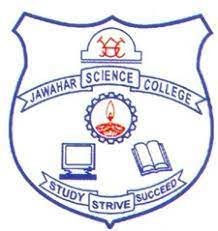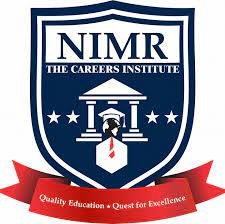Unlock the future scope and benefits of pursuing B.Sc. in Nutrition, as the demand for nutrition experts continues to rise in healthcare, wellness, and food industries.
Future Scope & Benefits for Bachelor of Science (B.Sc.) in Nutrition Course
Nutrition is a field of study that is vital to human health and well-being. A Bachelor of Science (B.Sc.) in Nutrition is an undergraduate program designed to equip students with the knowledge and skills needed to understand the science of nutrition, dietetics, and its impact on health. This degree offers a wide range of career opportunities and personal benefits in a world where nutrition plays a critical role in combating health issues, promoting well-being, and addressing public health challenges. In this article, we will explore the future scope and numerous advantages of pursuing a B.Sc. in Nutrition. A B.Sc. in Nutrition typically spans three to four years and covers a comprehensive curriculum that includes human nutrition, clinical nutrition, community nutrition, food science, and dietetics. Students gain practical experience through laboratory work, internships, and clinical placements, enabling them to apply their knowledge to real-world scenarios.
Future Scope of B.Sc. in Nutrition
The future of nutrition is exceptionally promising, given the increasing awareness of the role of diet in preventing and managing health conditions. Graduates with a B.Sc. in Nutrition are well-equipped to contribute to various sectors, including healthcare, research, the food industry, public health, and community nutrition. Here are key areas where they can make significant contributions.
Clinical Nutrition: Clinical dietitians work in healthcare settings, providing nutrition assessments, dietary recommendations, and interventions for patients with various medical conditions.
Community Nutrition: Professionals in community nutrition focus on public health and community-based nutrition programs, addressing issues such as food insecurity, malnutrition, and health promotion.
Nutrition Research: Graduates can engage in nutrition research, conducting studies to advance their understanding of diet-related health issues, such as obesity, diabetes, and cardiovascular disease.
Dietetics: Dietitians work in various settings, including hospitals, schools, and private practice, offering dietary counselling, meal planning, and nutritional guidance to individuals and groups.
Food Industry: Nutritionists and food scientists work in the food industry, developing and analyzing food products, ensuring their nutritional quality, and meeting regulatory standards.
Sports Nutrition: Sports nutritionists provide guidance to athletes, helping them optimize their dietary choices for performance, recovery, and overall health.
Public Health: Nutritionists contribute to public health initiatives by developing and implementing nutrition education programs, policies, and interventions to improve population health.
Research and Development: Graduates can work in research and development roles in food companies, developing new products and enhancing existing ones to meet consumer demands for nutrition and health.
Consulting and Private Practice: Many nutritionists and dietitians establish their private practices, offering personalized nutrition counselling and consultancy services.
Teaching and Education: Educators in nutrition programs and schools provide knowledge and training to the next generation of nutrition professionals.
Benefits of Pursuing a B.Sc. in Nutrition
Pursuing a B.Sc. in Nutrition offers numerous benefits, making it an attractive choice for individuals interested in health, nutrition, and wellness. Here are some of the key advantages.
Impact on Health: Graduates directly contribute to improving the health and well-being of individuals and communities through nutrition education and interventions.
Job Security: The demand for nutrition professionals continues to grow as healthcare systems recognize the importance of preventive and therapeutic nutrition.
Versatility: Nutrition professionals have diverse career options, from clinical practice and research to community and public health roles.
Global Relevance: The skills and knowledge acquired are applicable worldwide, enabling professionals to work in different countries and regions.
Healthy Lifestyle: Graduates often adopt healthy eating habits and lifestyle choices, benefiting their own health and well-being.
Continuous Learning: The field of nutrition is dynamic, requiring professionals to stay updated on the latest research and dietary trends.
Entrepreneurship: Nutritionists and dietitians can start their private practices or consulting businesses, offering personalized nutrition services.
Fulfilling Career: Nutrition professionals find their work fulfilling as they help individuals and communities make positive dietary choices and improve their quality of life.
 3 Years
3 Years
 Under Graduate
Under Graduate
 Science
Science
 Full Time
Full Time





















 back
back

